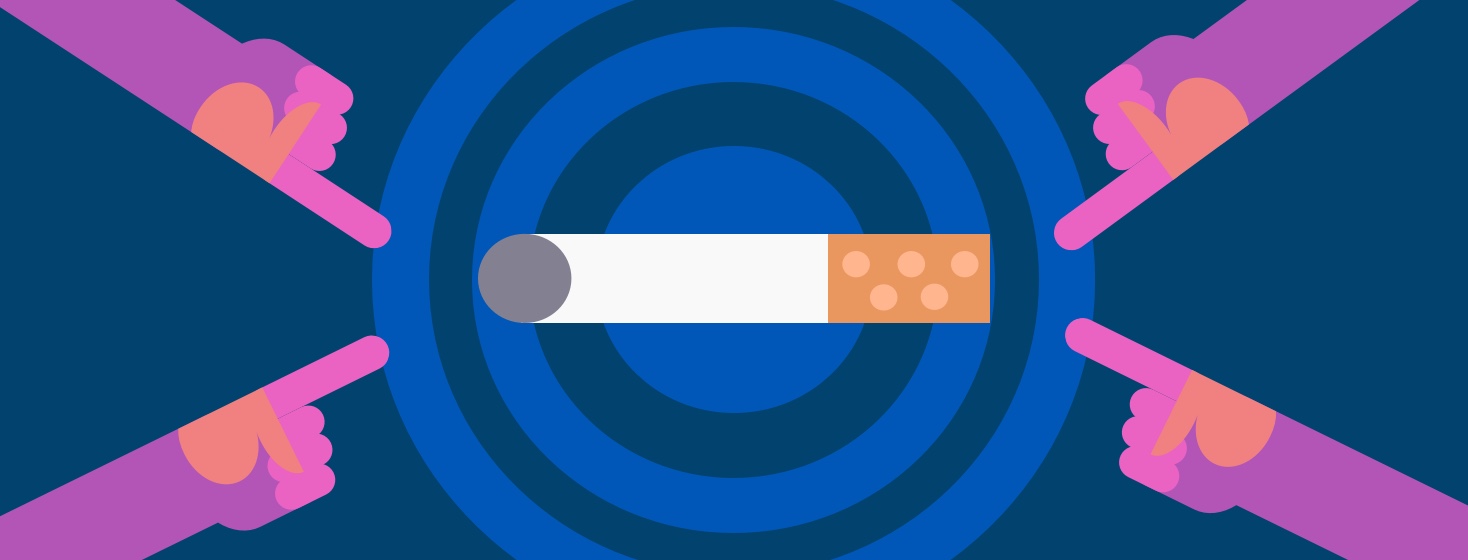The Stigma of Lung Cancer Hurts Everybody!
I'm not a smoker. Also my relatives, far or close, are not smokers either. So, from the day I got lung cancer, I felt that smoking is not my problem. The stigma of lung cancer was not related to me. For the first two years after my diagnosis, I was advocating a lot but not fully aware of the smoking stigma.
My experience with smoking
I smoked twice when I was young, but I never regret it, even now. When I was growing up, there was an influential culture in China that good women don't smoke and drink. I had not seen even one woman smoking in the place I grew up (Beijing, China).
When I was 18 in university, I lived with six girls in my dormitory. One evening, we decided to smoke a cigarette. I remembered we sat next to each other, sharing one cigarette, smoked one or two puffs. Some were coughing badly, but I was "cool". I felt grown up because I was standing up against that rule -- good women shouldn't smoke. I couldn't say I liked the taste, but the issue was not whether I liked smoking, it was the act of standing up to the rule.
The last time I smoked was several months later that I tried a cigarette. My classmates, six girls, and about fifteen boys went outing in the National Park. One boy took cigarettes out, I "skillfully" held the cigarette between two fingers, and had one puff. I remembered the girls who appeared serious and casual at the same time and had their puffs. Mine you, none of the girls ever touched a cigarette after that moment.
But it's not about the cigarette; it's about standing up against the rules. Looking back, I was so young.
Lung cancer stigma shifts the blame on smokers
When I started advocating for lung cancer, I didn't understand why the stigma against lung cancer patients is so strong. I didn't realize what smoking indicates and how this stigma affects everybody. For example, smokers are shamed because they have lung cancer due to their actions. Even if when we talk about lung cancer, non-smokers are feeling unfairly blamed for a "smoker's disease".
I then connected the dots that lung cancer has the lowest funding comparing with breast cancer, colorectal cancer, and prostate cancer, although lung cancer has the highest death rate. People blame this unfair funding crisis on smoking.
Stigma affects all lung cancer patients
It made me think about the 1980s and the harsh, unfair stigma around HIV. The government didn't grant proper research funding for HIV because of stigma. For every disaster, we tend to find somebody to blame. How wrong is that?!? Nobody deserves lung cancer, smokers or non-smokers.
Research saves lives. It has been well recognized, but research needs funding. This so-called "smokers' disease" has hindered funding because lung cancer receives less funding than breast cancer, colorectal cancer, and prostate cancer.
As shown in LUNGevity's Lung Cancer Statistics, only 6% of federal research dollars on cancer research are spent on lung cancer.1 Based on the information from the LUNGevity Foundation, 60-65% of new lung cancer diagnoses are among people who have never smoked or former smokers.1 Besides, the overwhelming majority of smokers DO NOT develop lung cancer.1,2 In a 2010 study by the International Association for Research on Cancer (IARC), which is part of the World Health Organization, the research found that only 10-15% of smokers develop lung cancer.2,3 The stigma is hurting us, not only smokers but also the non-smokers.
Don't repeat mistakes!
The US government didn't put enough funding forward to help people affected by HIV in the 1980s, but people raised millions of funds. Now I hope the governments of the USA, China, and Canada will not make the same mistake. We must investigate and research to cure the number 1 cancer killer in the world.

Join the conversation